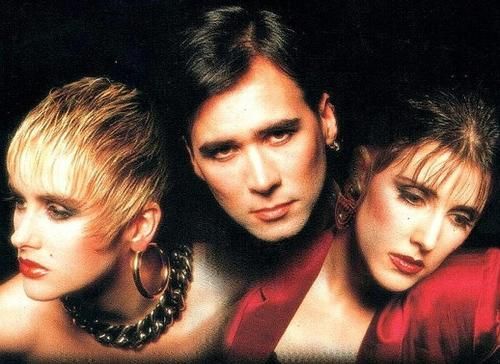“Human”- The Human League’s

Released in 1986, “Human” by The Human League stands as one of the iconic tracks of the synth-pop era, showcasing the band’s ability to blend electronic music with emotionally resonant lyrics. Written by lead vocalist Phil Oakey, along with co-writers and producers Jimmy Jam and Terry Lewis, “Human” marks a departure from the band’s earlier, more futuristic sound, embracing a more soulful and introspective style. The song’s success and enduring appeal can be attributed to its memorable melody, poignant lyrics, and the emotive delivery of its vocals.
Musically, “Human” is characterized by its smooth synth-pop production, which incorporates a rich, layered arrangement that includes lush synthesizers, a steady beat, and a melodic bassline. The production, helmed by the renowned team of Jimmy Jam and Terry Lewis, reflects the polished, high-quality sound that defined much of the mid-80s pop music. The song’s instrumentation creates a dreamy, atmospheric backdrop that enhances the emotional weight of the lyrics. The use of synthesizers and drum machines gives “Human” a quintessential 80s sound, while the incorporation of soulful elements adds a layer of depth to the track.

Phil Oakey’s vocal performance in “Human” is a standout feature of the song. His delivery is characterized by a mix of vulnerability and earnestness, effectively conveying the song’s themes of emotional struggle and the complexities of human relationships. Oakey’s voice captures the sense of longing and introspection that permeates the lyrics, making the song resonate with listeners on a personal level. The vocal arrangement, which includes harmonies and backing vocals, complements the lead performance and contributes to the song’s overall emotional impact.

Lyrically, “Human” explores themes of love, self-awareness, and the imperfections inherent in human nature. The song’s narrative revolves around the idea that despite our best efforts, we are all fallible and capable of making mistakes. The chorus, with its refrain “I’m only human,” reflects a sense of self-reflection and acceptance, acknowledging that everyone has their flaws and limitations. The lyrics resonate with listeners who may have experienced similar feelings of vulnerability and self-doubt, making the song relatable and emotionally engaging.

The success of “Human” was marked by its commercial performance and critical acclaim. The song reached number one on the Billboard Hot 100 in the United States and performed well internationally, further establishing The Human League as a major force in pop music. Its success was fueled by its catchy melody, relatable lyrics, and the strong promotional push that accompanied its release.
The music video for “Human,” directed by Tim Pope, visually complements the song’s themes with its moody, atmospheric imagery. The video features a mix of surreal and abstract visuals that reflect the introspective nature of the song. The use of visual metaphors and symbolic imagery enhances the emotional tone of the track and contributes to its lasting appeal.

In conclusion, The Human League’s “Human” is a synth-pop classic that combines a polished production with deeply personal and relatable lyrics. The song’s ability to blend electronic music with soulful elements, along with Phil Oakey’s emotive vocal performance, has ensured its place as a standout track of the 1980s. “Human” remains a testament to the band’s versatility and their skill in creating music that resonates with listeners on both an emotional and a musical level.











